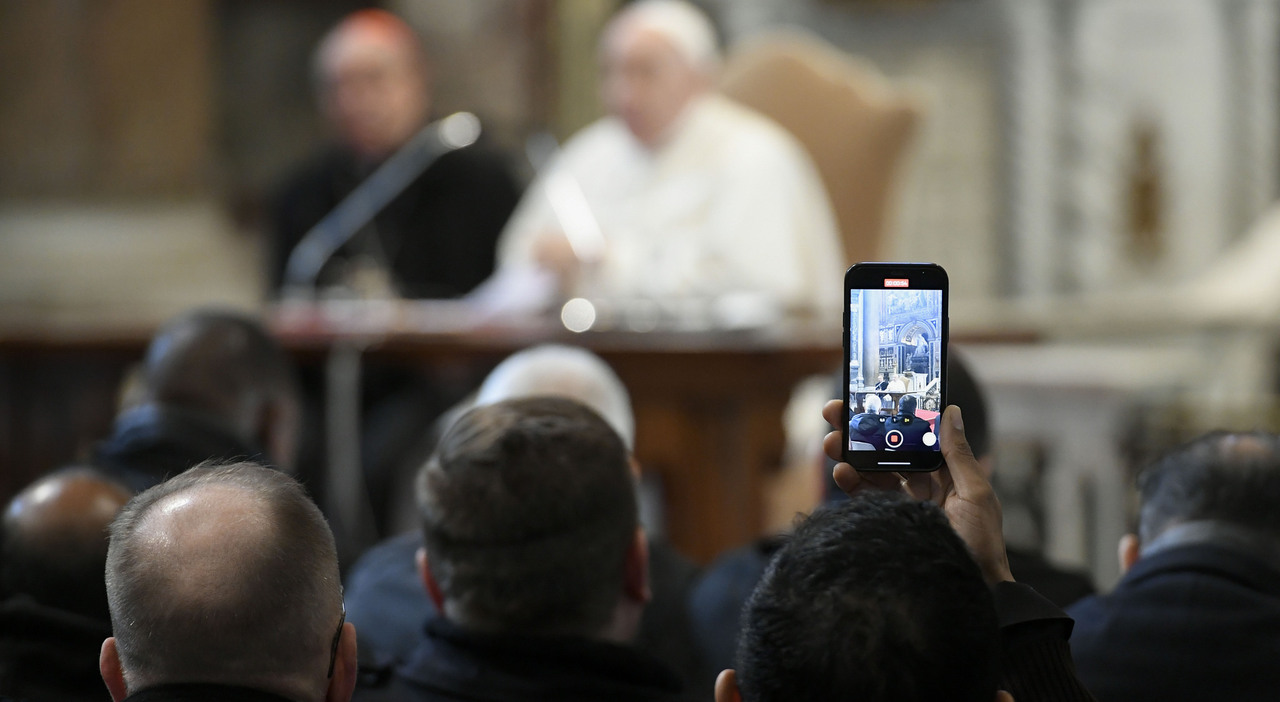The Church is sick. There are too many excesses, on one side and the other: there are those who celebrate mass with bizarre and imaginative rituals and even end up invalidating the sacraments with semi-invented formulas and those who, on the contrary, pursue a formalism for its own sake, based on the rigidity of a liturgical aestheticism that is exclusively pleased with form. In between, there is the hypocrisy of those who even refuse blessings to gay couples while not batting an eye at blessings to entrepreneurs who profit from work by exploiting people. Pope Francis has been carrying forward his reformist line for months and this morning, during a meeting in the Apostolic Palace with participants of the plenary of the Dicastery for Divine Worship and the Discipline of the Sacraments, he returns to address one of the decisive issues: "It's like saying: without liturgical reform there is no reform of the Church" he summarized.
War of the masses at St. Peter's, a Vatican document triggers the fuse
Francis explains that such a statement can only be made by understanding what liturgy is in a theological sense. A Church that does not feel the passion for spiritual growth, that does not try to speak in a comprehensible way to the men and women of its time, that does not feel pain for the division among Christians, that does not tremble for the anxiety of announcing Christ to the nations, is a sick Church. Excesses are harmful and for this reason the Pope has asked to develop a plan for liturgical training in seminaries and among parish priests around the world in order to avoid excessive rigidity and pompousness and bizarre and sloppy creativity.
"As we prepare new training paths for ministers, we must simultaneously think about those intended for the people of God. Starting with the assemblies that gather on the Lord's day and on the liturgical feasts: they constitute the first concrete opportunity for liturgical training. And so can other moments when people participate more in the celebrations". For Pope Francis, the liturgical reform introduced by Vatican II remains irreversible.
Pope Francis puts an end to the "baptism chaos": "Sacraments must be administered with rigor"
Against the backdrop of this change, the Pope's decision to minimize the Latin Mass, which can no longer be celebrated except for extraordinary provisions authorized by the bishop, remains clearly visible. A move that has not been immune from harsh criticism from the more conservative world that did not expect such a drastic tightening after Benedict XVI's attention to normalize that sector. With the Motu proprio "Traditionis custodes", which updates the rules established by Benedict XVI, he gave the bishop the power to authorize the use of the Missal prior to the liturgical reform of 1970, the prohibition of establishing new personal parishes for this purpose, the indication to choose non-parochial churches for these celebrations, the designation of a priest, expert in the "old" Missal and provided with a good knowledge of Latin, for the pastoral care of these groups and the prohibition of establishing new ones. In addition, the readings must be done in modern languages, therefore not in Latin. In fact, the Latin mass (celebrated with the priest's back) is not abolished but reduced to a minimum.
"Sacraments without mass", in Spoleto the priests' ok is discussed
In the morning, to a large group of priests who came to Rome for a conference, on the subject of sacraments, the Pope asked them to "always forgive". Remembering that when people come to confess, "they come to ask for forgiveness and not to hear a lesson in theology or penances. Be merciful, please.".
This article is automatically translated
